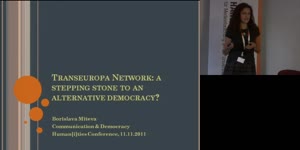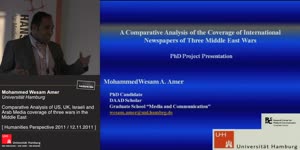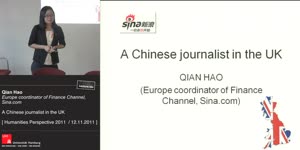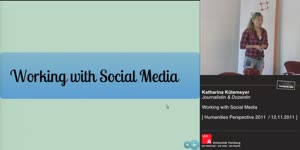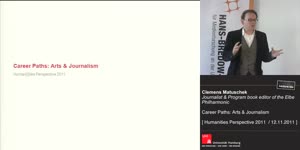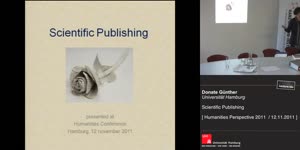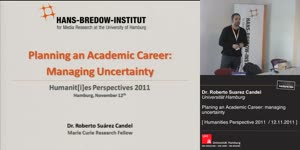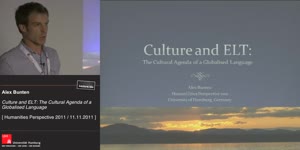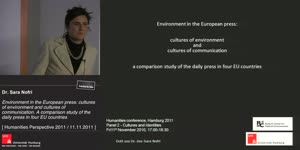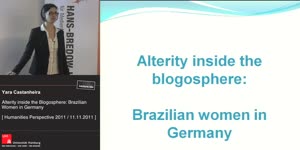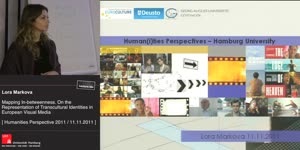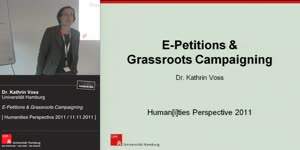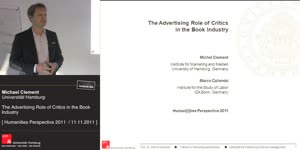Planning an Academic Career: Managing uncertainty - Dr. Roberto Suarez Candel - University of Hamburg
- Lecture2Go
- Catalog
- F.5 - Geisteswissenschaften
- Sonstiges
- Humanities Perspective 2011
Catalog
Planning an Academic Career: Managing uncertainty
(Spain) “Academic Career”
r.suarez(at)hans-bredow-institut.de
ABSTRACT: Deciding to pursue an academic career is not an easy choice. First of all, it is very improbable that the candidate has a clear picture of what it means and implies. Secondly, although the ways and steps are very different in each country, they tend to result in a quite long, complex and exhausting path in most of the cases. Finally, even when a master student or doctoral candidate are in the right track, luck becomes a determining variable. Unfortunately, luck is a scarce resource.
Having said that, an academic career could be described as a learning and personal growth process characterized by a high level of uncertainty. A happy end is never ensured, but the combination of a thorough planning, soft skills and personal determination might help to achieve the aimed goals.
In this talk, I will share my personal experience and ideas about why and how to:
- face your PhD
- plan your life after the PhD
- develop your personal and academic profile
- improve your soft skills
- attend to conferences and carry out research visits abroad
- promote yourself and your work
BIO: Roberto Suárez Candel (Ph.D. 2009 Pompeu Fabra University – Barcelona, Spain) works as a Marie Curie post-doctoral researcher at the Hans-Bredow-Institut für Medienforschung an der Universität Hamburg (Germany). Since February 2010, he has been in charge of a EU funded project that analyses the redefinition and reposition of public service broadcasting in the multiplatform media scenario [www.psb-digital.eu]. In addition to public service media, his main research interests are media policy and regulation, media structure and media technological innovation, particularly hybrid television. In his PhD dissertation, which has been awarded with two research prizes (2010 – Catalan Audiovisual Council; 2006 – Fundación Autor SGAE), he compared the public policies for the implementation of digital terrestrial television carried out in Sweden and Spain. From 2002 until the end of 2009, he worked as a researcher and associated lecturer at the Department of Communication of the Pompeu Fabra University.
-
 00:00:00Introduction
00:00:00Introduction -
 00:04:41How to...
00:04:41How to... -
 00:25:03Discussion
00:25:03Discussion

